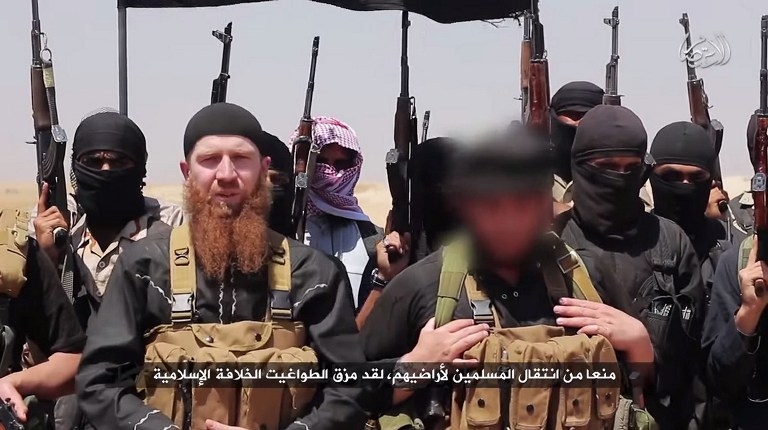Fifteen Australians, one American killed fighting with IS

Fifteen Australians believed to have been fighting with militant groups, have been killed in Syria and Iraq, further fuelling concern about the influx of foreign fighters to the region.
The Australians included two suicide bombers, intelligence chief David Irvine said Wednesday, while warning that espionage and foreign intervention threats were increasing. The foreigners are all believed to have been fighting alongside Islamic State or al-Nusra fighters, he explained.
The news comes as the US confirmed that a national, believed to have been fighting with IS, had been killed. The US militant has been identified as 33-year-old Douglas McCain, a one-time aspiring rapper and basketball fan from California who converted to Islam about a decade ago.
"The draw of foreign fighters to Syria and Iraq is significant and includes more Australians than any other previous extremist conflicts put together," said Irvine, who heads the Australian Security Intelligence Organisation (ASIO).
"ASIO believes there are about 60 or so Australians fighting with the two principal extremist al-Qaeda derivatives, Jabhat al-Nusra and the Islamic State in Syria or Iraq."
"We believe 15 Australians have already been killed in the current conflicts, including two young Australian suicide bombers," Irvine added, while stressing that 100s more people in Australia were "actively supporting" these extremist groups by recruiting new fighters, grooming suicide bombing candidates, and providing funds and equipment.
It is not known exactly how many foreign fighters have joined IS or other militant groups, but most estimates say that several thousand young fighters have come from the West.
International concern about IS has been rising after a lightning offensive by the group managed to wrestle control of vast swaths of Iraq from government control in June.
The group’s extreme acts of brutality which include mass executions and beheadings, have also sparked serious concern and pushed the US to begin targeting the group in Iraq.
The beheading of US journalist James Foley, who appears to have been killed by an IS member with a distinct British accent, further compounded calls for tougher international action against the group and its sympathisers.
Various countries have already begun enacting more stringent security measures. Prime Minister Tony Abbott told parliament on Wednesday that counter-terrorism units had recently been established at Sydney and Melbourne's international airports, and one person had been detained so far.
"Similar units will shortly be established at all international airports in Australia," he said, adding that an extra 80 border force officers would be stationed at airports to monitor the movements of those on national security watch lists.
"I am advised that these new units have already intercepted at least one person of interest," Abbott said, without providing details.
The US is now said to be mulling whether to expand its aerial campaign against Islamic State in Iraq to neighbouring Syria.
On Tuesday, the US announced that it would begin monitoring flights aimed at mapping IS positions in Syria but while it not rule out the prospect of carrying out raids, it firmly denied that it would cooperate with Syrian President Bashar al-Assad embroiled in a bloody uprising against his rule.
Stay informed with MEE's newsletters
Sign up to get the latest alerts, insights and analysis, starting with Turkey Unpacked
Middle East Eye delivers independent and unrivalled coverage and analysis of the Middle East, North Africa and beyond. To learn more about republishing this content and the associated fees, please fill out this form. More about MEE can be found here.




